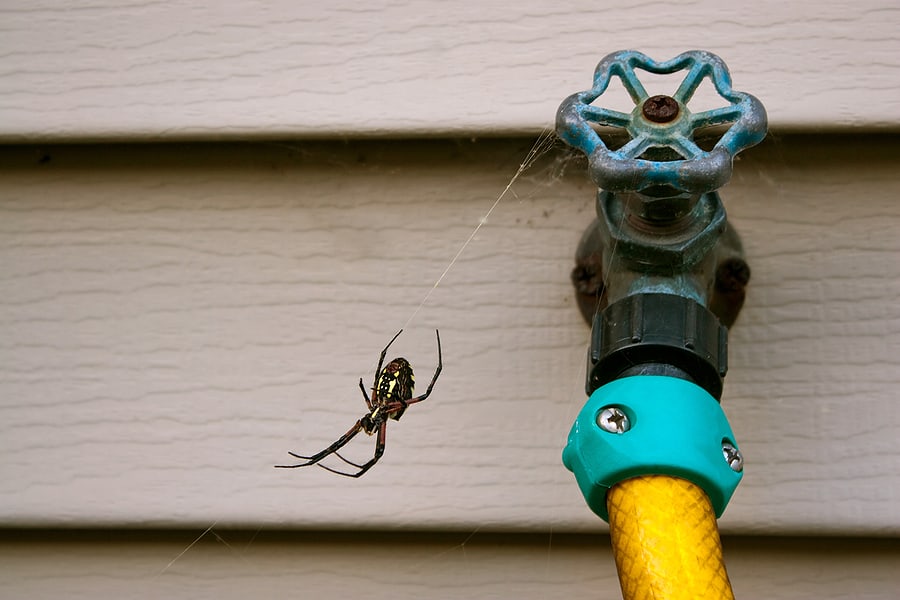Although spiders are considered a year-round pest, they become more visible and active in the spring. Overwintering pests like spiders emerge as the weather warms up to lay eggs for the approaching season. Spiders are predators, preying on smaller insects for food. They are usually not a huge threat to humans with only a few venomous species in our area. In fact, they can be quite beneficial to have around your home, working as a form of natural pest control by eating other insects you may have around.
If the thought of sharing your home with spiders creeps you out, don’t fret! Here are some spider prevention tips you can use this spring to help keep these pests out.
- Keep your outdoor lights off at night. Many bugs are attracted to light at night, providing a feast for spiders who are hanging around.
- Keep vegetation trimmed and your lawn mowed. Overgrown bushes, grass, and other debris give spiders the ideal place to hide.
- Don’t stack wood or install mulch to close to the sides of your home. Spiders will not only hide out in these places but will also use them as a bridge to crawl into your house.
- Make sure trees, shrubs, and other landscaping aren’t touching your home. Spiders will also use these to get indoors.
- Clean up food and crumbs immediately, both indoors and outdoors.
- Get rid of stacks of old newspapers, magazines, etc.
- Dust frequently and vacuum weekly.
- Make sure windows and door screens are intact. Spiders will use holes and tears to get inside.
- Get rid of cobwebs both indoors and outdoors. Spiders will use these to store food once they catch their prey.
- Apply diatomaceous earth to your yard. This is a nontoxic option for outdoor pest control that is harmless to humans.
- Consider natural remedies to prevent spiders. Some common methods include the use of mint, citrus, and vinegar.
- Contact a professional. Spiders can be difficult to get rid of on your own. A professional pest control company can help identify the type of spider you are dealing with; where they may be hiding, nesting, or getting inside; and the most effective way to treat them in your home.
You May Also Be Interested In:
Protecting Your Pets from Fleas and Ticks
What Happens During the Bee Relocation Process?

